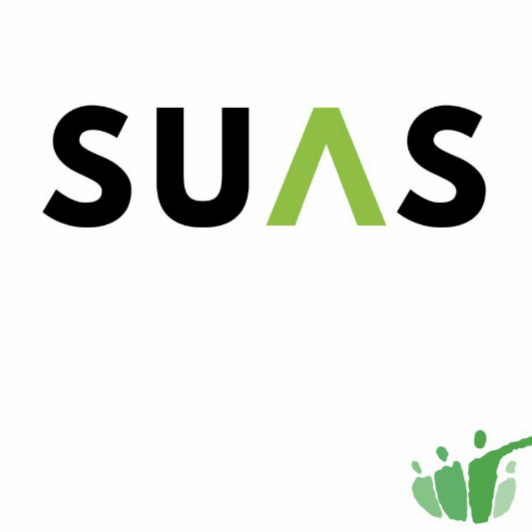“Their primary message is one of empowerment, with their main ethos focused on a dedication to combating social issues through volunteering and activism”
We have all seen the green t-shirts out in force around campus during Freshers’ Week. We stopped to look at the pop-up exhibitions from the 8×8 Festival in October, and our Facebook feeds feature students who’ve set up a GoFundMe page to raise money before they head off to India for ten weeks. However, I wanted to get to the core of SUAS, one of Trinity’s fastest rising societies, and find out what they’re actually all about about.
Growth in Recent Years
From chatting to TCD SUAS President Kevin Keane, I discovered that since being founded in 2004 by a group of Trinity students, SUAS has now become one of the biggest volunteering societies in College. When I think of SUAS, volunteering immediately springs to mind, but recently they’ve also moved into activism. In the past few years they’ve flourished as a society, growing from a mere 50 members four years ago, up to their 900 members today. They’ve continued with their overseas volunteering programme but have made the addition of domestic programmes which take place in Dublin City, including their paired literacy programme and SUAS Ar Scoil. You can sign up to these programmes as a way to get involved on a local scale and contribute towards helping educate young people on topics such as global warming and feminism, opening up their minds that little bit more to the intricacies of the world around them.
You cannot help but get the overall feeling that those in SUAS genuinely care about the people they work with, and speaking to Kevin gave me an insight into the impact of the work they carry out. Their primary message is one of empowerment, with their main ethos focused on a dedication to combating social issues through volunteering and activism.
Avoiding Voluntourism
SUAS feel strongly about not wishing to send their volunteers on a ‘voluntourism’ programme. The volunteering opportunity in India is one centred around a goal of helping children from underprivileged backgrounds gain an education. On their return to Ireland, the hope is that, feeling newly empowered and inspired, volunteers will continue a conversation. The ten week programme, arguably the cornerstone of the society, may be daunting to some considering you’re thousands of miles away from home without the many daily comforts that we often take for granted, but it is clear from talking to Kevin that such time is necessary and worth the rewards.
The importance of ten weeks worth of quality volunteering became evident as Kevin told me about the abandonment issues the children face in their society – to volunteer for only three weeks, forming a bond only to turn and leave again, now seems borderline cruel the more I think about it.
He shared a touching story of one of his pupils, who, within the final month, he discovered was due to get married before the year was out. Her parents could not afford to keep her in the school until she was 17 years old, and so an arranged marriage was the only alternative to continuing her education any further. The harsh reality of life in a place where human rights leave much to be desired is something that is only too easy to forget when you’re in the friendly classroom environment. SUAS volunteers seek to bring a bit of light into those situations where children are forced to grow up at an accelerated rate.
SUAS don’t try to mould student volunteers into teachers overnight, nor do they give them tasks too demanding for their capabilities. Rather than throwing a history student into a classroom to teach children mathematics, they form partnerships with schools and teachers and support them with their work. Unsurprisingly, it’s worked pretty well over the past few years, with groups of students continuing to head out every summer to volunteer.
Starting a Conversation
The conversation that they want to continue at home has also found itself continuing successfully in the format of STAND, the quarterly magazine that gives students a platform through which they can express themselves on topics they feel passionate about; from the refugee crisis to environmental sustainability, anyone with a voice can become involved. To those who may be a little shy about voicing their opinion in person, STAND seems like the perfect way to present your viewpoint on issues relating to global development.
The ethos of SUAS is clear, because the majority of what they do is based around it, around reaching out to the average student, educating them on global issues and encouraging them to get involved in a low-pressure environment. It all sounds rather promising to me.
SUAS are holding a “Rumble in the Jungle” for RAG week on 31st January at 7.30pm.







